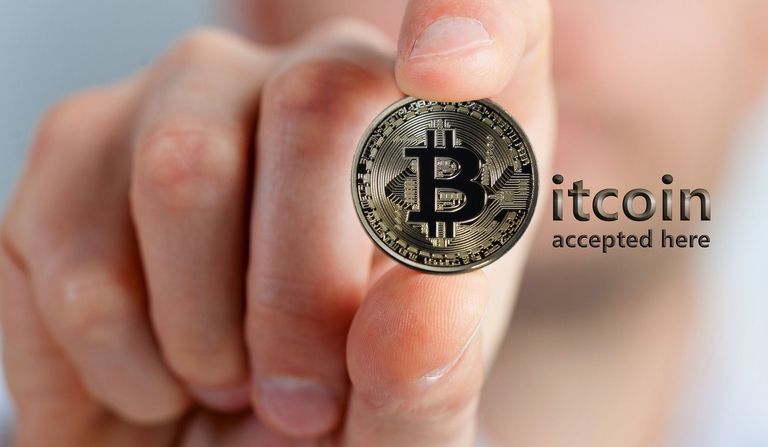
Introduction
Today, most people see cryptocurrency as a store of value or an investment, not a means of exchange. This results from multiple factors that have rendered cryptocurrencies impractical to use for everyday transactions, including price volatility and slow transaction speeds. Despite this, there are still proponents who believe that cryptocurrency will become mainstream once again, and according to some experts, it's only a matter of time before this prediction comes true. This article will explore both sides of the debate and look at the prospects for digital currencies like Bitcoin in terms of their practicality as a means of exchange.
Today, most people see cryptocurrency as a store of value or an investment, not a means of exchange.
Cryptocurrency remains a futuristic project. Today, most people see cryptocurrency as a store of value or an investment, not as a means of exchange. But this is only one way to view crypto. It can also be understood as an international payment system that works faster and more cheaply than any other system today. The question is how we are going to get from here to there and whether it'll be via the creation of new kinds of money that have unique properties not found in cash (e-money), bank deposits (fiat currency), gold bars (commodity money) or state-issued currencies such as dollars and euros.

The present lack of regulation provides the perfect breeding ground for bad actors and scams.
Cryptocurrency scams and fraud are rampant, and it's your responsibility to stay informed. The lack of regulation is a red flag in this space.
It's important to know what you're getting into before investing in any cryptocurrency, so make sure you read up on all the latest scams—and there are many! There are also many cryptocurrencies that have been outright scams, like OneCoin and BitConnect.
Scams can be difficult to spot if you don't know what you're looking for. Some scammers use social media or email to promote their fake crypto products or services; others try to lure users with promises of quick profits; still, others pretend to be legitimate companies but actually function as shell corporations with little or no assets backing them up (and often keep moving from country-to-country). Scammers sometimes even host conferences in major cities like New York City, where attendees pay thousands of dollars for tickets but once inside, there's nothing much going on except empty rooms filled with tables where vendors display their wares (or non-existent wares) for sale.
The hype is real in blockchain, but the technology needs maturity before mainstream adoption.
Blockchain is the technology that makes cryptocurrencies possible. It's a decentralized ledger that records all transactions without the need for a central authority or third party. The most well-known application of blockchain can be seen in bitcoin and other cryptocurrencies: people use them to exchange money without banks or governments involved in the transaction, who typically charge fees on such transactions. However, blockchain has many more applications than just cryptocurrency; it can also store medical records, track supply chains and manage digital identities.

Facebook's attempt to make its own currency was possibly the kiss of death for cryptocurrency as a means of exchange. Facebook Credits were a virtual currency that could be used to purchase items in games on Facebook. They were available only within the Facebook ecosystem and had no value outside it. The entire system was centralized around one company that is, there was no option for anyone else to create their own currencies or accept payments in any other form than Facebook Credit.
When people tried using their Credits outside of the platform (for example, by purchasing an item from eBay), they would sometimes find themselves unable to complete the transaction because of eBay's Terms of Service agreement restrictions. In addition to being limited in use and acceptance by merchants who wanted nothing to do with this new payment method, users also had difficulty withdrawing their earnings due partly because they were unable to access them across multiple devices or platforms, thus rendering them practically useless outside of Facebook itself.

To me, Cryptocurrency is still early days in the history of blockchain and although these technologies remain unpopular with governments and corporations, they may one day be considered as powerful as the internet itself. Blockchain is a distributed ledger. It's a decentralized system. Blockchain is a consensus mechanism, but it also functions as a distributed database and even as a decentralized network—all at once or in various combinations, depending on the project.
In other words, blockchain technology has the potential to be used for everything from tracking diamonds to managing land titles and voting rights.
It's still early days in the history of blockchain and cryptocurrency; although these technologies remain unpopular with governments and corporations, they may one day be considered as powerful as the internet itself.

Whether cryptocurrency succeeds or fails has less to do with its technology than with the people who use it.
The first thing to understand about cryptocurrency is that it isn't a means of exchange. You can't use Bitcoin to buy anything, nor can you pay your employees or vendors in it. The same goes for all the other cryptocurrencies: they are not part of any national currency system, and they have no practical use as such.
Next, cryptocurrency is not a store of value. It has no intrinsic value—it's not backed by anything concrete like gold or silver—and its price fluctuates wildly from one moment to the next based on factors that have nothing to do with economics or logic (like whether people are buying or selling). That's why it's called a "bubble."
Thirdly, cryptocurrency is not a safe investment; anyone who thinks otherwise should look at what happened in 2018 when Bitcoin dropped by half in just over two months, only to recover almost instantly (at least temporarily). The crypto industry continues to attract charlatans and opportunists looking for quick cash rather than true believers looking for long-term gains; this will eventually lead these schemes down an ugly path if they aren't careful about who they let into their ranks and how much money those people bring with them into the ecosystem.
Finally, there's no reason whatsoever why anyone would choose Bitcoin over traditional methods like PayPal when sending money online because there are many ways better alternatives out there that don't require installing software onto computers running insecure operating systems like Windows 10, which could potentially leave users vulnerable during times where cybercriminals want nothing more than access into someone's personal account so they can steal everything inside!
Conclusion
The crash of Luna and UST further dented the hopes of achieving a very high adoption rate this year as millions of money as been lost and so as lots of lives that could not live through the heartbreaks. Crypto remains the most highly risky investment in the world as the technology has not yet attained any level of perfection.
It's not just about what cryptocurrency can do for us; it's also about what we can do with cryptocurrency. When the technology is mature enough to be widely adopted, and regulations are in place to protect consumers from scams, then perhaps, just perhaps the dream of buying a cup of coffee with a digital currency could be realized.
Posted Using LeoFinance Beta